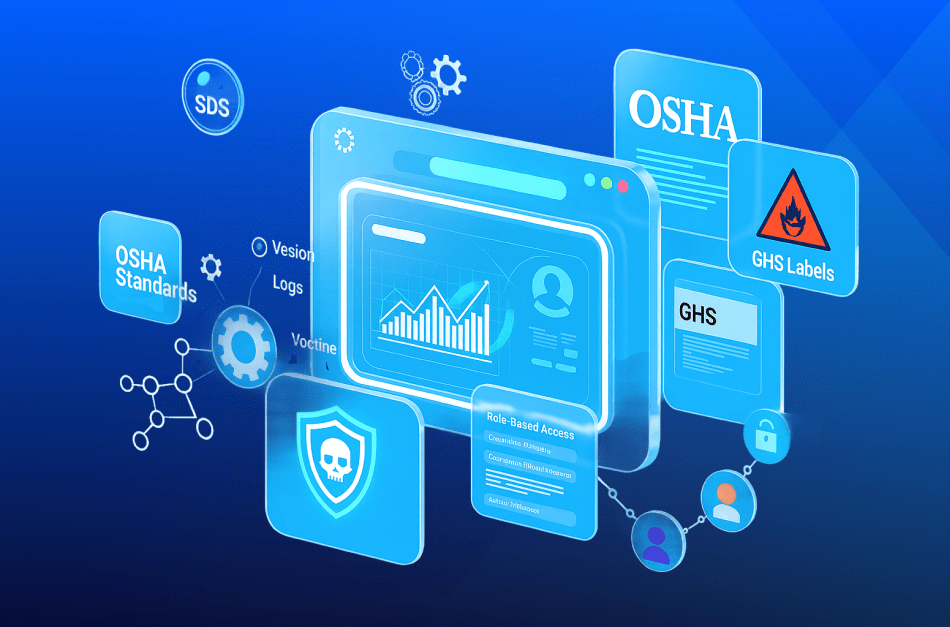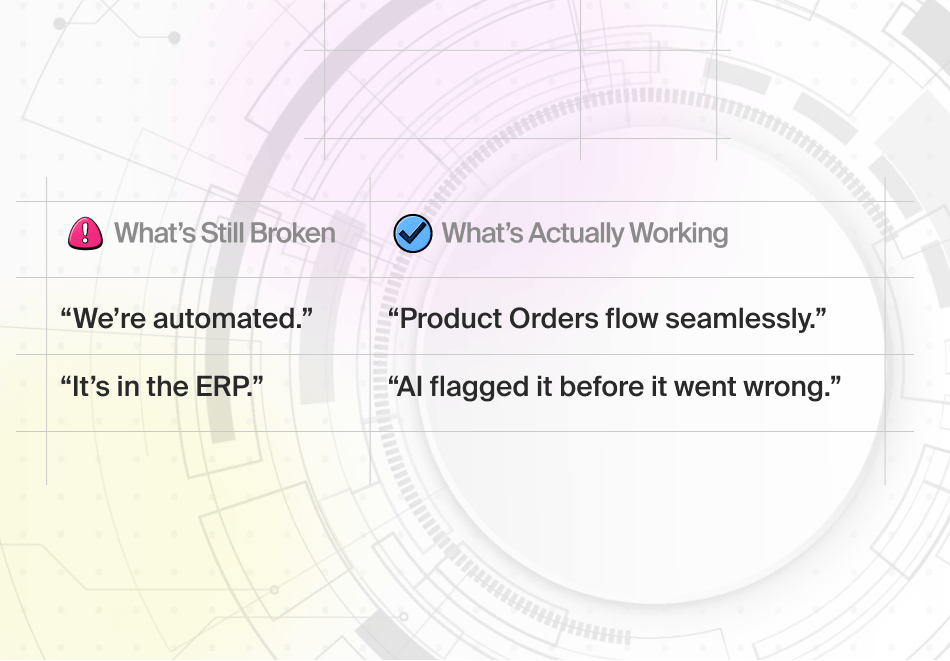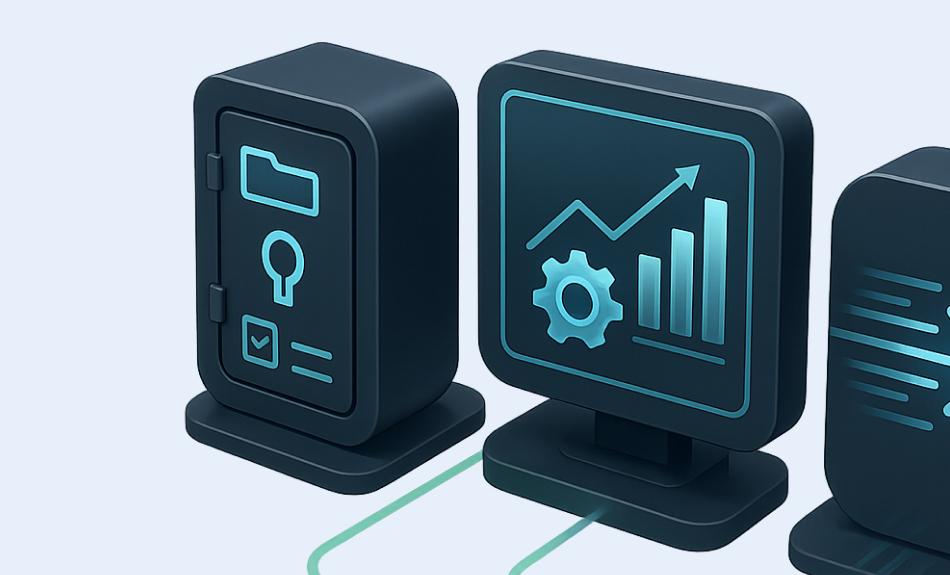At a Glance
The Oil and Gas Industry is highly dynamic and volatile. Wars, politics and environmental concerns are some of the stressors affecting a capital-intensive industry. Centralized software that manages the nuances and intricacies will boost each company’s financial performance.
Enterprise Resource Planning (ERP) systems, which are becoming more common in many other industries, help to integrate all related tasks. One of the best examples is inventory and finance, letting companies know what they have and how much it’s costing them. ERPs help create a performance standard, letting companies set goals and use real-time data to know if they’re achieving them. Effective ERP solutions easily integrate tasks, manage risks, localize financial accounting and ensure quality checks.
Introduction
A slang term for crude oil is “black gold” because of its value. Oil is a pillar of the world economy, with prices playing a major role in determining the cost of goods and services around the globe. The industry’s size, complexity and high operating costs all demand organized management. Executives need to know where each asset sits in the pipeline. They need accurate, detailed data for planning and budgeting plus inventory and distribution.
Integrating ERP in the Oil and Gas Industry
More and more oil companies and refineries are starting to embrace ERP software solutions. Why? Because it addresses real-time business operations. Areas that benefit the most include:
- Obtaining raw materials
- Monitoring production
- Managing inventory including spills, waste and burn-off
- Tracking handling equipment
One major challenge facing oil companies is their broad distribution. For example, they can have production facilities in the Middle East and refineries in the United States, Europe and China. This means they have to maintain distribution routes almost everywhere.
Oil companies have an intricate supply chain that never stops working. This can add undue stress to both employees and equipment.
ERP software lets companies monitor operations from anywhere. They can know now, not in a week, the status of an oil field in Saudi Arabia or a tanker going through the Panama Canal. Modern ERPs help identify different ways to improve efficiency while boosting flexibility.
5 Key Reasons to Add an ERP
ERP solutions are the most viable option for improving production and overall management. Traditional companies in the Oil and Gas industry stand to gain significant advantages when they implement a modern ERP solution, including:
Figure: 1Key Reasons to Add an ERP
- 1.Ease of Integration: ERP solutions are designed to be stable, easily scalable and flexible. They function on-site and with cloud systems. ERP systems especially shine in asset planning and budgeting lifecycles. ERP solutions such as Microsoft Dynamics 365 easily integrate with a suite of related third-party programs. Instead of having a plant’s production department using one system and inventory management using something else, the entire operation is integrated into a single system. By having departments talk to each other, business meets its productivity standards, regulatory requirements and other deadlines.
- 2.Effective Risk Management: Risk management is a vital component of everyday business activities in the oil and gas sector. Geopolitical pressures, environmental concerns, social activities, asset damage, cost overruns for high-value construction projects, fines for non-compliance, cyber threats and protecting personnel: they all impact daily operations. Integrated ERP solutions let management identify potential risks. You can detect risks before they become expensive problems. Companies can balance and manage multiple operations simultaneously, ensuring they all run smoothly. By seeing how the supply chain functions in real-time, companies can prepare emergency contingency plans.
- 3.Efficient Project Management: A key advantage to ERP software such as Microsoft Dynamics 365 Supply Chain Management is its ability to manage complex supply chains regardless of their locations. An effective ERP helps manage both offshore and onshore operations, streamlining procedures driving basic business goals, helping to move raw materials to new markets. As individual shipments move from wells to refineries, ERP software lets companies adhere to regulations in every country and state along the way.
- 4.Localizing Financial Accounting: Oil and gas companies are aware of the huge capital investments, long lead times and unfavorable environments needed to extract and process their raw materials. Exploration and production frequently involve joint ventures to share the costs. Once the product is pulled from the ground, these companies face multiple regulations, compliances, currency risks, commodity pricing and other challenges as they move it from the wells to refineries and then to consumers. Efficient ERP solutions keep track of the regulations, taxes and fees in each region. They provide detailed financial records at every step.
- 4.Quality Control: Robust ERP solutions also integrate state-of-the-art engineering utilities matched with high-end total quality management (TQM) functionality. The result is a 360 degree view of quality issues, helping to address problems more quickly.
5 Features to Look for in an ERP Solution
Now that you’re aware of some possible uses, it’s equally important to make sure these five features are in whatever ERP solution you choose. The Oil and Gas sector’s sensitivities create unique requirements from its ERP solutions. These following features continue to be increasingly related to real-time operations and complex business compliance issues.
- 1.Asset Control: Managing all assets—such as locating new resources, acquiring them, and then refining the products—is vital for efficient operations. When you’re trying to find the best ERP System for an Oil and Gas Company, you’ll want to make sure it defines and tracks your assets, monitors their usage and availability, manages all documents, integrates mobile apps and data, and submits reports.
- 2.Agile QA Processing: Quality assurance is the key to constant improvement, especially in the oil and gas sector. Finding more efficient ways to convert raw materials into finished products helps offset research and development costs.
- 3.System Integration: Integrating existing software is often a key decision point in getting an ERP up and running quickly. It’s critical to make sure that whatever ERP solution you choose meshes with the software your employees use daily, otherwise you may face delays while work-arounds are developed. The perfect ERP solution creates superior analytics using real-time data from different sources. This will include workflows and service calls.
- 4.Standardizing Data Processes: The Oil and Gas industry is heavily impacted by precise management of workflows and global market analysis. Effective ERP solutions use a standard data storage method. Using this method, companies can balance multiple projects no matter where they occur: upstream (exploration and drilling), midstream (transportation, storage and processing) or downstream (refining crude oil and purifying natural gas).
- 4.Compliance: Many ERP solutions fail to deliver when it comes to overseeing complex compliance issues. Not being accurate often causes problems over time. Effectively managing different government regulations—such as when a pipeline crosses national or state borders—is a key benefit of a robust ERP solution.
Final Thoughts
The best ERP solution for companies in the Oil and Gas sector is one that:
Companies that navigate smoote implementations often start training almost from Day One. Training employees early gets their buy-in and lets people learn how D365 can make their work lives easier.
- Integrates with a company’s current third-party software
- Tracks inventory, plans capital projects and creates emergency plans
- Streamlines the data into a unified flow
- Collects data from diverse systems scattered around the globe
- Allows the data to be used by any division
- Integrates information from devices equipped with industrial internet of things (IIoT) sensors
- Aligns with your company’s requirements to ensure minimal waste and deliver the best results
Expect nothing less than perfection. Having the right ERP solution will help you achieve just that.
The International Energy Agency’s Energy Technology Perspectives report highlights that digitalization and integrated ERP systems play a crucial role in reducing carbon emissions, optimizing energy use, and improving transparency across oil and gas supply chains.
Book a assessment to get started with tailored ERP Solution for your Oil and Gas Company.









